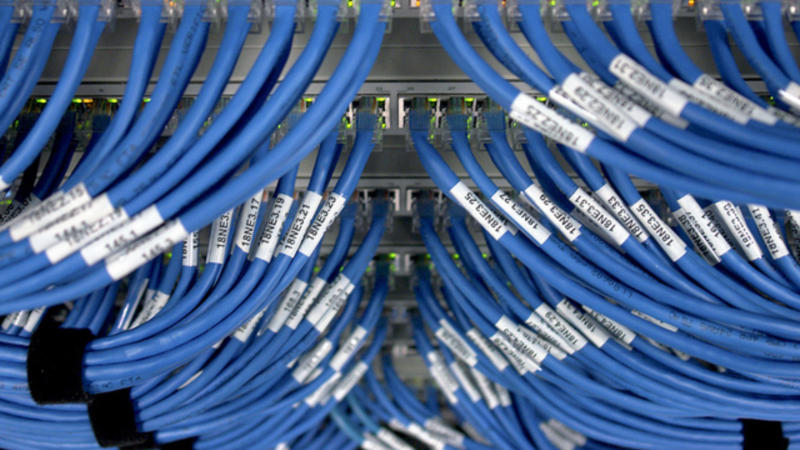Telecoms operators will face new rules on competition with rivals
Telecoms companies will face new rules on how they can access internet networks under a change to EU law that could stoke tensions between large, former monopolies and smaller operators.
The European Commission is leaning towards introducing rules that would relax regulations on telecoms operators if they update their networks to give consumers faster internet connections.
Trade-offs
Regulators would “be encouraged not to impose access obligations” that allow telecoms operators to use networks owned by larger companies if the major firms make a “significant improvement compared to available networks”, according to the Commission’s in-house legal analysis of the planned changes.
The executive is planning to propose changes in September to telecoms rules that haven’t seen an update since 2009.
Telecoms companies argue the old laws no longer make sense now that internet services, like WhatsApp and Skype, can compete with traditional phone calls and SMS texting but don’t face the same rules, while the Commission wants new laws to pick up lagging investment in internet networks.
The executive wants to extend some telecoms rules to cover internet platforms like Skype’s dial-out service and is eyeing a target internet speed for all households in Europe to reach 100 megabits per second by 2025, according to leaked Commission plans published recently on EurActiv.com.
But the Commission’s draft legal analysis of the plans—a document that weighs in at 401 pages, which EurActiv has obtained—reveals how the executive will make sure smaller companies can access networks owned by major operators. Smaller firms argue that without rules guaranteeing that access, they won’t be able to compete.
The document describes the Commission’s preferred strategy on competition and says that the legal reform will not include a mandatory separation of companies’ telecoms service and network infrastructure businesses. That will mean that a decision like last month’s move from UK regulator Ofcom to force BT to separate its networks business won’t become the norm in Europe.
The Commission will not require telecoms operators to switch from older copper cable networks to faster fibre glass, but the legal opinion states that fibre glass will be the only technology that can meet the executive’s internet speed goals.
The executive lays out several arguments for moving to fibre glass, including that if networks are built completely with fibre glass throughout Europe it “could lead to environmental benefits resulting in 88% less greenhouse gas per Gigabit” because internet users would use less electricity with faster service.
Tensions
Some large telecoms operators won’t be happy with the sharp language about a complete switch to fibre glass. The Commission has been entrenched in a heated political fight with Germany’s regulator over a controversial plan to allow giant firm Deutsche Telekom to update and continue using its copper networks.
A large chunk of the document analyses the Commission’s plans to reform how EU countries auction off radio spectrum, which the executive is eager to change despite pushback from national governments who want to protect spectrum sales.
Huge differences between auction prices for spectrum around the EU are fragmenting the European mobile market, according to the Commission’s analysis.
The executive’s plan to introduce binding conditions for countries to license out spectrum would “involve some reduction in the current degree of national flexibility,” the Commission admits in its opinion.
The Commission wants to muffle political backlash over spectrum by aligning them with a “5G narrative” regarding faster mobile broadband networks, according to a separate internal document recently published on EurActiv.

